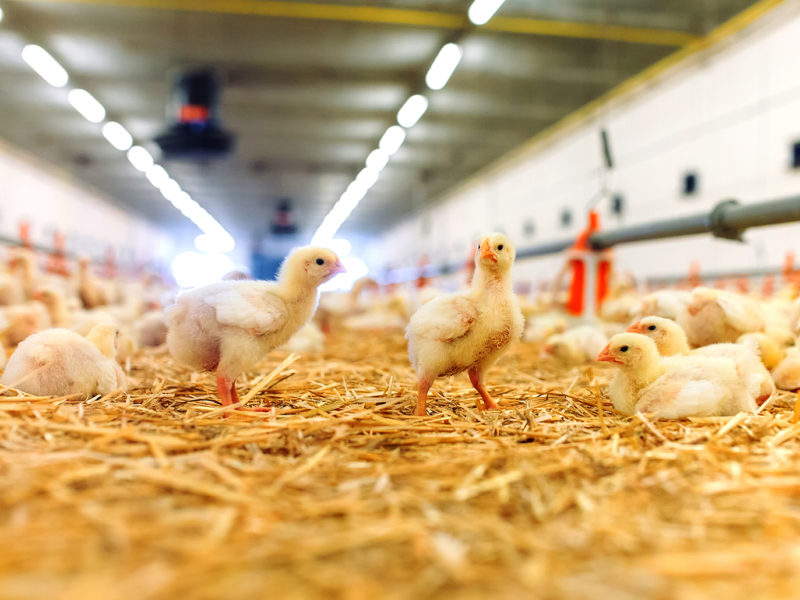ABBOTSFORD – With pandemic restrictions lifting and demand for chicken stabilizing, BC poultry producers are renewing their focus on biosecurity to stave off some well-known infectious diseases affecting their birds.
“Biosecurity continues to be a challenge for us,” BC Chicken Growers Association president Dale Krahn told growers at their annual general meeting in Abbotsford, March 1. Disease caps the now-familiar litany of afflictions the industry faced in 2021, including heat domes, forest fires, flooding, atmospheric rivers that strained supply chains, increasing costs and endangering human and animal safety.
The risks have quite literally gone viral as 2022 dawns, with highly pathogenic avian influenza and infectious laryngotracheitis (ILT) threatening flocks.
“The world is fighting with avian influenza,” says Krahn, noting that Europe, Asia, Africa and the US have all seen significant outbreaks, in some cases with heavy losses.
Atlantic Canada has reported an outbreak, and the virus was also identified in an eagle in Delta.
“Growers are reminded to continue their heightened biosecurity as we see health challenges approach BC,” says Krahn. “So far the BC poultry industry has had success staving this off by following our stringent biosecurity measures, which are continually updated by the BC poultry biosecurity committee.”
BC’s last significant high-path AI outbreak was in the winter of 2014-2015.
Krahn notes that strong biosecurity measures are important against a host of threats, including ILT.
“We know that the most likely route by which [the ILT] virus moves is on the wind from contaminated manure, or infected flocks being moved,” he says. “As a poultry industry, we need to work together to mitigate this disease.”
Rising costs
Growers continue to struggle with high costs that have eliminated margins and pushed many into loss positions. Despite two previous rejections for the A-173 and A-174 production periods, BCCGA is claiming exceptional circumstances for the A-175 production period in the hope of winning a price for growers that reflects production costs.
“Growers must have their costs addressed in any pricing solution for our industry to have any chance of sustainability,” says Krahn. “These cost increases, including feed, chicks, sawdust and energy costs – as the membership well knows – are far beyond what our growers can sustain, and for which the current BC pricing formula cannot account. These extraordinarily high costs are expected to continue for some time.”
Yet neither the BC Chicken Marketing Board nor BC Farm Industry Review Board have accepted the requests for adjustments to pricing, although BC Chicken has acknowledged the issue.
BC Chicken chair Harvey Sasaki told growers that wheat futures were $65 a ton higher than corn in June 2021, but the differential had increased to $177 a ton by December. Grower prices are based off corn, the dominant feed grain in Ontario, whereas BC growers use wheat. The huge differential is a huge pain for growers, on top of inflation-adjusted prices that are half what they were in the 1970s.
“Dale described it best in his presentation,” notes Sasaki. “That’s a pretty tough bill to be able to accommodate in the light of all these other challenges.”
BC FIRB took a hands-off approach at the meeting, saying industry must settle the pricing question itself.
“BC FIRB is looking to the chicken board, and the broiler hatching egg commission, as the first-instance regulators in the broiler chicken industry,” FIRB executive director Kirsten Pedersen told growers in response to questions.
Krahn was clear that the situation was dire before 2021, and is now unsustainable.
“We have said it consistently since 2016, and we continue to remind our governing bodies that chicken growers’ returns are not sufficient to meet their ever-increasing costs as they farm chicken,” he says. “We are farming our depreciation, and it is unsustainable.”
But there was some good news for growers on the financial front. BC Chicken returned $943,000 in surplus levies from 2019 to growers, and more could be forthcoming if challenges this year don’t intervene.
Chicken Farmers of Canada first vice-chair Nick de Graaf, a Nova Scotia producer, also urged growers to register for federal support through the Poultry and Egg On-Farm Investment Program, which compensates growers for market access concessions made under the CP-TPP and CETA trade deals with Pacific Rim and EU trading partners. BC growers have access to $48 million under the program.
“We don’t have to ask for the actual funds right away but we must all register. The challenge is that some farmers still haven’t,” he says. “I understand that not all of us will need or want the funds until later, maybe several years later, but we must ask you to register now.”
Registration will show appreciation for and demonstrate the importance of government support for the sector.


 Cool weather is good news
Cool weather is good news